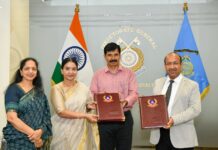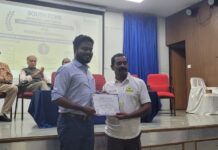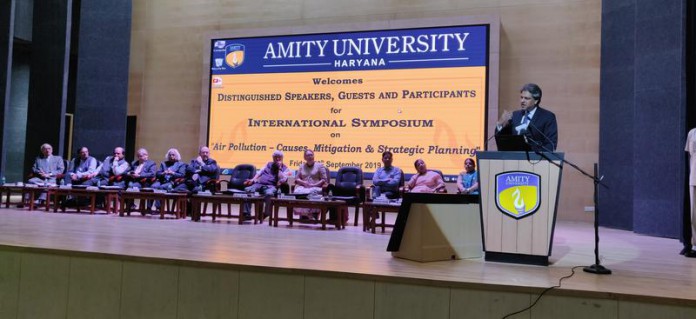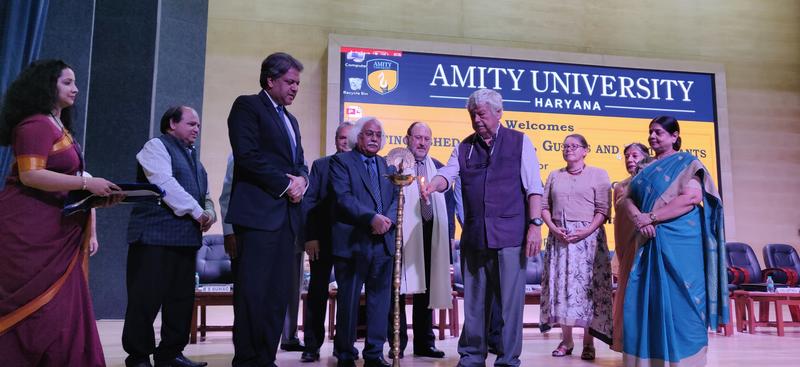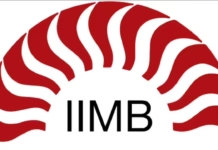Globally acclaimed scientists congregated to devise the ways to curb the environmental threats
New Delhi / NCR, September 24, 2019:Amity University Gurugram, India’s leading private university, organized a top level International Symposium on Air Pollution – Causes, Mitigation & Strategic Planning at its Gurgaon campus. The noted scientists, environmentalists and the other experts across the globe ascertained the potent causative factors for the enormous threat of air pollution to the modern civilization and its rational curbing and remedial measures.
-

Online Internship with Certification
Important Announcement – EasyShiksha has now started Online Internship Program “Ab India Sikhega Ghar Se”

How EasyShiksha Internship/Training Program Works
Top Courses in Computer Science Engineering Top Courses in Virtual Reality
Loading...
Air Quality of Delhi and NCR region has been a matter of grave concern for the last few years. Air pollution has claimed over 7 million lives a year and is a major cause of non-communicable disease such as heart attacks, strokes and lung cancer worldwide. It also accelerates climate change. Tackling it can help reduce health risks related to weather extremes, sea level rise, drought and food production.
The Central pollution Control board (CPCB) and National Environment Engineers Research Institute (NEERI) have declared vehicular emission as a major contributor to air pollution of Delhi and NCR.
Todays’ symposium saw the distinguished panelists focus on presenting various perspectives on air pollution, identifying gaps, finding possible solutions and concluding upon strategic planning as the next steps.
-
Top Courses in Computer Science Engineering Top Courses in Software Engineering
Loading...More Courses With Certification
Chairing this notable event, Dr. Aseem Chauhan, Chancellor,Amity University Gururgam, said:“ Amity University is committed to bringing together the best experts from around the world and India. To be a part of the solutions to the devastating air pollution problem. We have identified key sources and pollution solutions. Over the last years though our centre for air pollution.
Amity University, Gurugram is making sustained efforts to ward- off such a colossal environmental hazard. An AQI measurement system has been established at the University for continuous monitoring of air quality in Delhi NCR.”
Vice chancellor, Amity University Gurugram,Dr. P.B Sharma, said, “Air Quality of Delhi and NCR region became major concern when AQI touched 999 in the month of October 2015. At Amity University Haryana, we took the call as early as October 2015 to establish a Centre of Environmental Health Sciences and jointly with our ACOAST and in collaboration with IITM Pune have engaged seriously to monitor, model and analyse the air pollution and its trajectories.”
He further added, “Our monitoring is based on a state of art Air Quality Monitoring Station SAFAR established with in our campus by IITM and Ministry of Earth Sciences Govt of India. Our efforts on Air pollution studies are further strengthened by NASA Aeronet that is installed in our ACOAST (Amity Centre for Ocean Atmospheric Science and Technology)that has enabled us to study aerosol particles ranging from 1 nano-gram to 1000 microgram sizes and trace the trajectories of aerosol travel from as far as the Oil Producing Arabic countries.”
Delivering his keynote address, Dr Kirk R Smith, said that “household pollution if effective cut down shall alone solve much of the air pollution in India”. He also emphasized that we need to emulate some of the best practices from China, Singapore and New York to make NCAP more effective.
Dr Arthur Frank said Air Quality has a direct bearing on human health and be given at most priority in India. Now, that the air pollution has assumed such alarming proportions.
Dr Alena Bartonova shared the best practices of EU clean air program which laid great emphasizes on effective implementation of air quality standards.
The notable speakers on the panel included,), Dr Kirk R Smith (Berkeley University), Dr. ArthurFrank (Drexel University, Philadelphia), Dr. Alena Bartonova (Norwegian Institute for air research center), Dr. M. Mohapatra (DG of IMD and Earth Science department, GOI), Professor Mukesh Khare (IIT, Delhi), Professor Dr. Gufran Baig (IITM, Pune), Dr Qamar Rahman, Distinguished Scientist, AUUP, Lucknow Campus, Dr P Kakkar, Head, CSIR – IITR, Lucknow and Dr Sumit Sharma, Director Earth Sciences, TERI.
The major recommendations of the symposium revolve around
(i) Source specific solutions such as improved fuel quality, phasing out diesel and petrol vehicles, bringing EV’s on roads and accelerating use of clean energy such as solar.
(ii) More effective monitoring and making national network of monitoring of air quality more smart and intelligent using bio data analytics and AI.
(iii) Low cost sensor technologies to democratize air quality monitoring.
(iv) More effective implementation through good governance and inter-state cooperation.
It was the opinion of the experts that the NCAP should aim at bringing Air Pollution down to 20-30 percent of as of now rather than aiming at cutting down Air Pollution mere by 20-30% by 2024. It was also felt that the National Clean Air Act 2020 is also urgently needed.
Top Courses in Networking
More Courses With Certification
Empower your team. Lead the industry
Get a subscription to a library of online courses and digital learning tools for your organization with EasyShiksha
Request NowALSO READ: CII-education-employability
Get Course: Basic-Chemistry-Fundamentals-Definition












